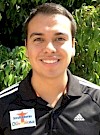AASP Newsletter - May 2020
Positive Organizational Psychology of Sport (POPS): From Theory to Practice
 Beau Leaf |
 Brendan Meany |
 Rob Owens |
 Jason Rich |
 Jeffrey Romero |
 Conrad Woolsey |
University of Western States
Historically, sport and exercise psychology research has focused on individual-level factors affecting athletic performance and well-being. Recently, applied practitioners have begun to recognize the roles sport organizations play in enhancing or diminishing athletic performance (Fletcher & Wagstaff, 2009). Wagstaff, Fletcher, and Hanton (2012) suggested that positive organizational approaches can be useful with aiding athletes and organizations to achieve optimal functioning. Following these authors, we invite practitioners to draw from a Positive Organizational Psychology of Sport (POPS) perspective to contemplate how like things like group dynamics, stress, role perception, and pro/antisocial behaviors influence organizational, team and athlete functioning. In this article, we describe the POPS perspective and illustrate how we have applied it on our consultancy work with a national rugby team, an NCAA Division III rowing club, and elite rowing and sprint canoe/kayak athletes.
Positive Organizational Psychology in Sport (POPS)
According to Wagstaff et al. (2012), POPS is defined as “the study of positive attributes, processes, and outcomes associated with sport organizations and their members” (p. 88). For the purpose of this article, POPS stands for all the elements related to organizational flourishing and performance excellence. These elements include positive behaviors, positive environments, and positive outcomes. Positive behaviors encompass the study of organizational citizenship behavior which can be understood as individual actions not directly, explicitly, or formally rewarded that promote the effective functioning of an organization (Aoyagi, Cox, & McGuire, 2008). Positive environments are where athletes live, train, and compete, and consist of the environmental factors influencing moods, emotions, and motivations of athletes (Wagstaff et al., 2012). Positive outcomes are the organizational factors that provide the foundation for successful elite performances including such entities as “support services and support facilitation, having high-quality coaching, and positive coach-athlete relationships” (Wagstaff et al., 2012, p. 93).
Positive Organizational Behaviors: The Case of Rugby Belize
Drawing on a POPS perspective requires a solid understanding and attention to positive behaviors (Janssen, 2014; Wagstaff et al., 2012). There is no magic bullet for establishing positive behaviors in a team (Duhigg, 2017). Designing interventions that promote a positive culture in a sporting organization is exceptionally challenging. Building one from ground level, in a foreign country, is terrifying. As the Belizean Rugby 7’s National Team Coach, I (Brendan) was tasked with developing a positive culture in the National Team, in a country where I did not live and had relatively little knowledge.
Rugby is a sport played all over the world. With the success of the 2019 Rugby World Cup, its popularity continues to grow at a rapid rate. Like Lewis (2011), I believe (rugby) teams and organizations should encourage members to collectively establish standards for behavior. Encouraging athletes to devise guidelines will increase autonomy and buy-in accordingly (Janssen, 2014). This presented a problem in Rugby Belize; how does a team create guidelines for an unfamiliar sport? To guide player development and engage ownership in the National Team, Rugby Belize’s mission incorporates the Five Core Values of World Rugby: integrity, passion, solidarity, discipline, and respect (World Rugby, 2019). Standards of behavior should be viewed as aspirational guidelines that inspire excellence and quality (Janssen, 2014). The world’s most dominant team in the history of rugby, The New Zealand All Blacks rugby team, lives by the motto: Good people make good All Blacks (Kerr, 2015). It was our goal at Rugby Belize to provide a roadmap to success in sport, but also their personal lives.
Using POPS to Foster Team Identity Within a Division III Rowing Team
One way of helping athletes identify and embrace strengths is by creating positive environments. As mentioned previously, positive environments are where athletes live, train, and compete. In the past year, I (Jason) was tasked with designing and implementing a strengths-based intervention for a Division III men’s rowing team. A POPS perspective helped me examine how coaching practices drive optimal team performance through identity management (Fransen, Boen, Stouten, Cotterill, & Broek, 2017).
Working with a Division III technical school posed unique challenges and opportunities. During an initial group consultation that included athletes, coaching and support staff, I asked them to define what made their school their program unique compared to other similar Division III schools. As a technical school with an overwhelming majority of engineering majors, it was quickly determined the rowing program was unique for its level of technical analysis. In other words, the athletes felt that they may not be able to row harder than the competitors, but they could row smarter. It was important for me to incorporate the team’s “social identity” (Tajfel & Turner, 1979) in the design of the POPS intervention. I asked athletes to consider how they could use their strengths in quantitative reasoning to their advantage, and what type of communication and feedback they needed from coaching staff to support their “row smarter” team identity.
Based on the team’s collective identity, the head coach was motivated to change how he communicated with the team to become more aligned with his athletes’ preferred behaviors. With the start of a new fall season, after over 25 years of the same routine, the coach informed the athletes that there would be changes in the rowing stroke that better aligned with biomechanical principles. To facilitate the change in rowing style, the coach used more technical verbiage in his communications with the team and would broadcast a weekly "Technique Minute" email. While the goal of the rowing program was enhancing skill acquisition and self-improvement, the weekly manifestos of fluid mechanics and stroke efficiency reinforced a mastery culture in the new rowing stroke. Athletes bought into the changes because they were part of the team’s identity.
Positive Outcomes: Well-Being within Elite Rowing and Sprint Canoe/Kayak Athletes
As Neil, McFarlane and Smith (2017) noted, well-being within sport organizations is influenced by situational and individual factors. Situational influences include “behaviors that coaches and teammates exhibit within the workplace and the climates that coaches or leaders may create” (p. 106). Individual influences include goals and motives for sport participation, emotional intelligence, and interpersonal skills. Therefore, POPS interventions that seek to improve athlete well-being within sport organizations must consider athletes’ individual traits and the contexts in which the athlete trains and competes. I (Beau) have consulted with high performance and junior level rowing and sprint canoe/kayak athletes who are seeking to perform on the world stage for Team USA for the last four years. Improving the capacity for self-care and emotional well-being for the sixty athletes I consult with could lead to positive outcomes in their performances (Neil et al., 2017). In my interventions, I teach coaches how to offer meaningful feedback to empower athletes to own their performances and execute the coping strategies that work for them. Keeping the focus on well-being versus performance afforded athletes the opportunity to improve professionally and personally.
Concluding Remarks
Leaders of sports organizations create the culture, but culture is influenced by organizational members (Lewis, 2011). A POPS perspective can help practitioners identify the barriers and facilitators to creating inclusive organizational environments that promote flourishing (Wagstaff et al., 2012). Engaging athletes in the process of establishing positive behaviors, creating team-identity, and promoting well-being, ignites autonomy, competence, and relatedness (Di Domenic & Ryan, 2017), a major driver of organizational success.
References
Aoyagi, M. W., Cox, R. H., & McGuire, R. T. (2008). Organizational citizenship behavior in sport: Relationships with leadership, team cohesion, and athlete satisfaction. Journal of Applied Sport Psychology, 20(1), 25-41.
Di Domenico, S. I., & Ryan, R. M. (2017). The emerging neuroscience of intrinsic motivation: A new frontier in self-determination research. Frontiers in Human Neuroscience, 11, 145.
Duhigg, C. (2017). Smarter, faster, better: The secrets of being productive. London: Random House.
Fletcher, D., & Wagstaff, C. R. D. (2009). Organizational psychology in elite sport: Its emergence, application and future. Psychology of Sport and Exercise, 10, 427-434.
Fransen, K., Boen, F., Stouten, J., Cotterill, S., & Vande Broek, G. (2017). Optimal environments for team functioning in sport organizations. In C. R. D. Wagstaff (Ed.), The organizational psychology of sport: Key issues and practical applications (p. 235–255). Routledge/Taylor & Francis Group.
Janssen, J. (2014). How to build and sustain a championship culture. Cary, NC: Winning the Mental Game.
Kerr, J. M. (2015). Legacy: 15 lessons in leadership: What the All Blacks can teach us about the business of life. London: Constable.
Lewis, S. (2011). Positive psychology at work: How positive leadership and appreciative inquiry create inspiring organizations. Malden, MA: John Wiley & Sons, Ltd.
Neil, R., McFarlane, H. M., & Smith, A. P. (2017). Well-being in sport organizations. In C. R. D. Wagstaff (Ed.), The Organizational Psychology of Sport (pp. 119-137). Routledge/Taylor & Francis Group.
Tajfel, H., & Turner, J. C. (1979). An integrative theory of social conflict. The Social Psychology of Intergroup Relations, 2, 33-47.
Wagstaff, C. R. D., Fletcher, D., & Hanton, S. (2012). Positive organizational psychology in sport. International Review of Sport and Exercise Psychology, 5(2), 87-103.
World Rugby. (2009). Play Rugby. Retrieved from https://www.world.rugby/welcome-to-rugby/rugbys-values



